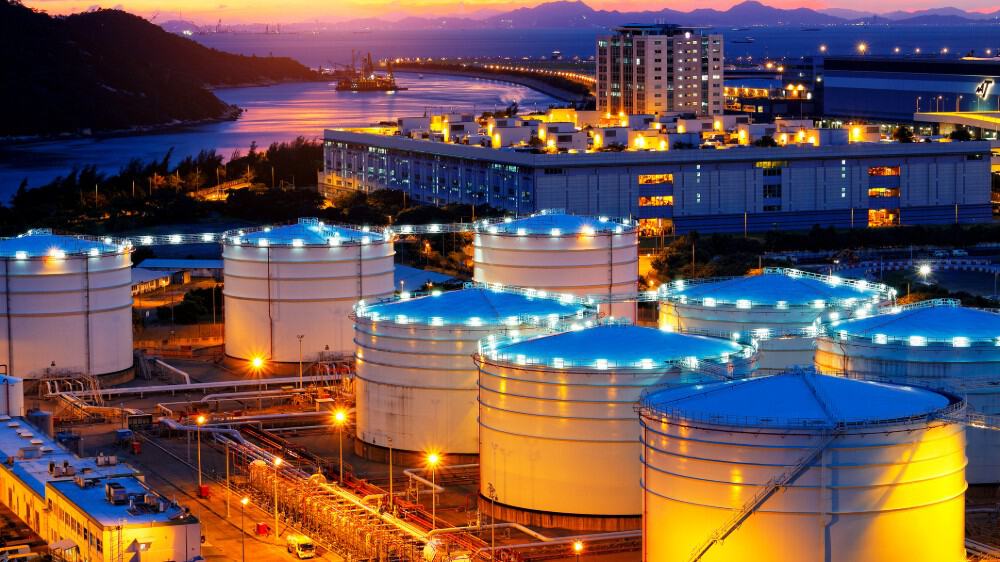Inter Pipeline Ltd (TSX:IPL) is a millionaire-maker stock — or at least it was.
From 2009 to 2019, shares tripled in price, all while paying a dividend yield averaging above 5%. Investors didn’t need to choose between growth and income. Inter Pipeline stock delivered both.
Then the market crash happened. And I’m not just talking about the coronavirus crash. The biggest downturn affecting Inter Pipeline is the oil crash.
At the start of the year, oil prices average US$60 per barrel. Last week, they approached US$20 per barrel — a slide that forced Inter Pipeline stock lower by 65%, prompting a dividend cut for the first time in years.
Value investors are circling the stock, but you need to fully understand what you’re buying.
Inter Pipeline is complicated
You can probably guess that Inter Pipeline is a pipeline company. That’s a great business to be in.
For more than a decade, Canada’s energy sector has pumped an ever-increasing supply of fossil fuels. New projects, especially on the west coast, have resulted in a surge of demand for pipeline capacity. That’s because pipelines are the cheapest, fastest, and safest way to transport crude oil and natural gas.
But there’s a problem: pipelines are incredibly expensive and time-intensive to build, which limits industry capacity. Existing operators benefit greatly from this dynamic, which results in extreme pricing power for incumbents.
It’s for this reason that pipelines charge customers on volumes, not commodity pricing. Crude oil can fall 30% in price, yet pipelines can turn the same profit as long as they ship the same volumes.
Inter Pipeline has a few additional layers of complexity. First, much of its transportation infrastructure is dedicated to oil sands operations. As we’ll see, this strategy comes with its own risks and rewards.
Second, it also operates ancillary businesses like bulk liquid storage and natural gas processing facilities. While these are still profitable businesses, but they can suffer more from short-term volatility.
Here’s the bet
Conventional pipelines represent just 15% of Inter Pipeline’s cash flow, which means you’re betting on two things. First, its oil sands transportation infrastructure, which comprises 55% of cash flow. Second, the ancillary business like processing and storage, which total 30% of cash flow.
In 2020, management anticipates generating cost-of-service and fee-based cash flow of around $800 million. Those cash flow sources should be reliable as long as the oil pricing war doesn’t continue.
When oil slid from US$100 per barrel to US$50 per barrel in 2014, pipeline operators like Inter Pipeline weren’t terribly impacted because their volumes were stable. The most recent crash brought prices down to US$20 per barrel. This is a significant problem.
If prices revert higher over the coming months, climbing above US$50 per barrel, it’ll be back to business as usual for Inter Pipeline. In this scenario, Inter Pipeline stock is a bargain.
Its committed cash flows should service debt payments and capital expenditures, and the recently lowered dividend will save around $500 million annually.
But what if oil doesn’t rebound quickly? Inter Pipeline’s customer base could be in trouble. Some of its oil sands customers break even at prices above US$40 per barrel. Most require prices above US$30 per barrel. We’re far from those levels today.
These customers will continue to pump to cover cash costs, but if the pricing downturn is prolonged, production will eventually be slashed. That will be a direct blow to Inter Pipeline.
And because the company’s infrastructure comprises mostly fixed costs, even a small decrease in cash flow could have a disproportionate effect on profits.
An investment in Inter Pipeline today is a bet on how quickly and strongly oil prices recover. Will oil rebound above US$40 per barrel by the summer? If so, that would make the stock a buy.
But remember, that would require oil prices rising by 70% in a matter of months. If you’re not a huge oil bull, stay away from this stock.








